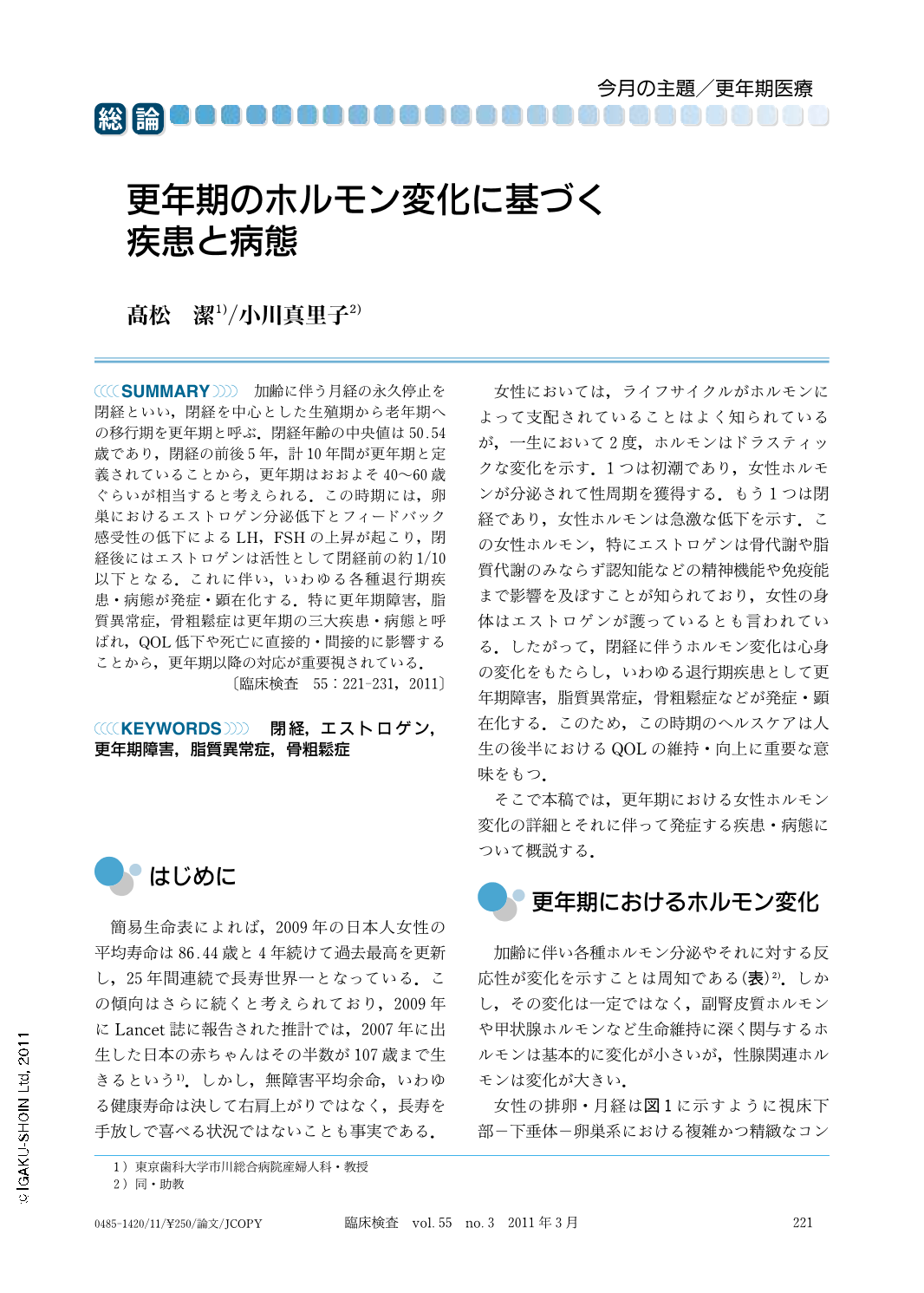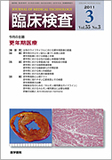Japanese
English
- 有料閲覧
- Abstract 文献概要
- 1ページ目 Look Inside
- 参考文献 Reference
加齢に伴う月経の永久停止を閉経といい,閉経を中心とした生殖期から老年期への移行期を更年期と呼ぶ.閉経年齢の中央値は50.54歳であり,閉経の前後5年,計10年間が更年期と定義されていることから,更年期はおおよそ40~60歳ぐらいが相当すると考えられる.この時期には,卵巣におけるエストロゲン分泌低下とフィードバック感受性の低下によるLH,FSHの上昇が起こり,閉経後にはエストロゲンは活性として閉経前の約1/10以下となる.これに伴い,いわゆる各種退行期疾患・病態が発症・顕在化する.特に更年期障害,脂質異常症,骨粗鬆症は更年期の三大疾患・病態と呼ばれ,QOL低下や死亡に直接的・間接的に影響することから,更年期以降の対応が重要視されている.
Menopause, the permanent cessation of a menstruation, results from aging. The median age of natural menopause was reported at 50.54 years-old, and the ten years surrounding this event have been defined in Japan as the climacteric period. As circulating estrogen levels decrease dramatically during this period and estrogen receptors are dispersed throughout the body, this hormonal shift affects many tissues, from brain to skin, and so-called involutional diseases become clinically evident. In particular, climacteric disorders, dyslipidemia, and osteoporosis have been labeled the triad of disorders during this period. Management of these disorders is required for an improved quality of life (QOL) during and after menopause.

Copyright © 2011, Igaku-Shoin Ltd. All rights reserved.


